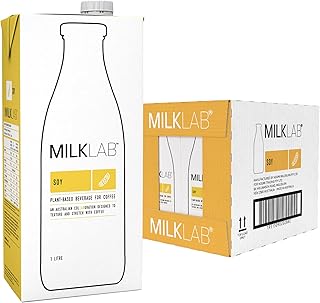Soy milk, a plant-based alternative to cow’s milk, offers various benefits for health-conscious individuals. It is a dairy-free option suitable for vegans and those with lactose intolerance. With its low calorie and saturated fat content, soy milk provides essential plant-based proteins that can aid in reducing inflammation and supporting heart health.
Rich in antioxidants, soy milk may help combat free radicals and lower inflammation levels in the body. Studies suggest that soy supplements can decrease C-reactive protein, a marker for inflammation, in certain populations. Additionally, the consumption of soy products like soy milk has been associated with a reduced risk of heart disease and improved cholesterol and blood pressure levels.
For women experiencing menopause, soy milk’s isoflavones can mimic estrogen in the body, potentially alleviating symptoms such as hot flashes and mood swings. Moreover, regular intake of soy products, including soy milk, has been linked to a decreased risk of various cancers, such as breast, gastric, prostate, and liver cancer.
When considering the nutritional profile of soy milk, one cup typically contains essential nutrients like protein, vitamin A, and magnesium. Fortified versions often include additional nutrients such as calcium and vitamin D. However, individuals with soy allergies should exercise caution as soy is a common allergen.
While soy milk offers numerous benefits, it is essential to be mindful of potential risks associated with certain products, such as added sugars and gastrointestinal discomfort. Despite misconceptions surrounding soy products and health concerns like cancer, research indicates that soy consumption is generally safe and may even have protective effects against certain cancers.
For those looking to incorporate soy milk into their diet, there are various options available, including fermented, flavored, and fortified varieties. Making soy milk at home allows for greater control over ingredients and freshness, though store-bought versions undergo processing to ensure a longer shelf life.
In conclusion, soy milk stands as a versatile and nutritious alternative to traditional dairy milk, offering a range of health benefits. By understanding the nutritional content and potential risks associated with soy milk consumption, individuals can make informed decisions about incorporating this plant-based beverage into their diet.
📰 Related Articles
- Soy Milk: A Nutritious Dairy-Free Alternative with Health Benefits
- Unlocking the Health Benefits of Chia Seeds for Wellness
- Unlocking the Health Benefits of Chia Seeds for Wellness
- Exploring Aloe Vera Benefits for Skin Health
- Discover the Health Benefits of Chia Seeds for Wellness
📚Book Titles
- Digital Exposure: Unmasking the Hidden Perils of our Privacy in the Information Age
- Beyond Chance: Exploring the Interplay of Superstition in Sports and Gambling
- Shadows of the Mind: Exploring the Enigma of Superstitions from Folklore to the Future
- A Beginners Guide to Social Media for Your Business






